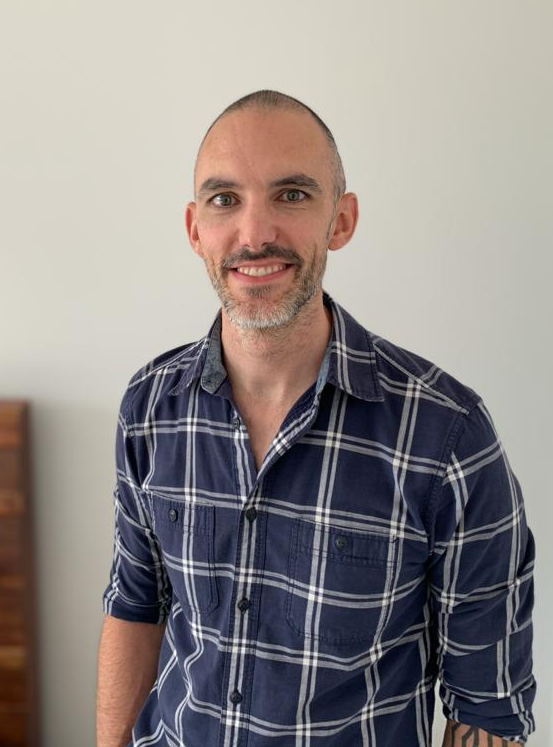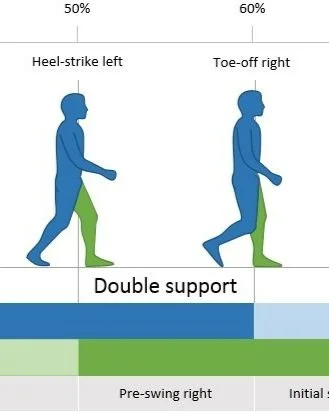KENNY ROY
Animator, Game developer
Today’s interview is with Kenny Roy, animator and game developer.
My goal behind these interviews is to not only get to know people in the industry to celebrate what they have accomplished but to also go behind the scenes and get an idea of who they are at their core: their personality, what motivates them, how they think about themselves, how they think about their craft, talk about their struggles, their values… And most importantly, to learn from them.
A quick intro:
I had the chance to have this interview live with Kenny, where we talked about his journey both in the animation and in the game industry, the challenges in both fields and their differences. We talked about the challenges of running a company and creating a self-funded game.
If there is one thing that caught my eyes in his answers is his groundedness to reality, balancing the line between knowing that hard work might have gotten you where you are, but it’s important to remember that luck and chance always play a role in it. The other thing that caught my attention, and to which I can relate a lot, is his soul searching for his purpose, for something that “fits”, the thing a person is “meant to do”. This quest lead him first to find animation, and later directed him to the videogame industry.
“You tell yourself that things are going to be different this time, but then again, you’ve told yourself that things were going to be different the last time. So what IS going to be different this time? ”
1. Give us a small introduction about what you do and your professional journey so far.
I started teaching myself computer animation when I was in high school and back then there were a lot of people inspired by the work of Pixar and Dreamworks/PDI. Back then I was very interested in traditional animation so I applied at CalArts, but unfortunately, I didn’t get in. At that time, CG animated films felt a lot more further off in the industry than, it turns out, actually was. I was given an internship at ILM after winning a competition for high school students that were there at the time in the states. Of course, it wasn’t that smooth and there were bumps along the way. After ILM I’ve run my own company for 13 years. Then, I’ve decided to finally scratch the itch of creating videogames, which were a big part of my whole life since I was very little. I’ve been doing this professionally for 7 years now, and there is no doubt in my mind now that this is what I was meant to do.
2. What were the challenges of running your own company?
You would think that managing the company would have been the main challenge, but actually, the real challenge was getting work and having a stream of projects. Animation people are usually enthusiastic enough for what they do that I didn’t have to motivate them or manage them. And you’re always chasing down clients, always trying to make ends meet, pay your people, and get the project done. Chasing that and living that life for so long almost made me forget what made me want to do it.
3. Do you think your previous experience with your company helped give you the confidence to start this new one?
It’s a double-edged sword, it’s yes and no. On the one hand, you know how hard things can get, and you don’t ever really want to get back there. So you tell yourself that things are going to be different this time, but then again, you’ve told yourself that things were going to be different the last time. So what IS going to be different this time? If you can come up with a good answer to that you’re in good shape. But if you can’t, it’s kinda hard to have the confidence that it’s not going to go exactly as it went before.
4. What was one of the biggest challenges of your career/life and how did you overcome it?
I took a big chance in developing the videogame “I, Hope”, which was self-funded, and everything else that happened afterward was a result of that chance. Even if the result was good I would never do that again and would not recommend anyone to do that.
The majority of indie developers consider themselves lucky if they break even, most of them lose money in developing the game. I realized that if that’s just the reality, and if I plan on losing money, what can I buy instead?
I had to make a game that you have to pay attention to, and in order for people to pay attention to it, I’ve made it for an audience that needs that attention, which for me was children in the hospital, fighting cancer. And I donated 100% of the proceeds to charity (not profit).
5. Was there ever a moment during the production of “I, Hope” where you were hit by impostor syndrome?
Yes, there is always opt to be a moment where you’re waiting for something to happen, and when it does happen and you think “what did I get myself into”?
There was definitely a moment on that, especially when it was time to deliver the Xbox version of the game. But it was more the technical challenge of it, so it wasn’t so bad.
6. How’s your experience different in the game industry?
I think that video games are more meritocratic, based on the quality of your ideas and the quality of your product. And if you are a passionate person you’ll be able to rally people around you.
The amount of things I’m thinking about on a day-to-day basis feels like it is exponentially more than it is in L.A. doing animation. The game industry is more long-term and future-forward. Animation is more of a linear medium, it’s not quite as fast-paced and having to know what’s going to happen in a year. For me, that’s why it’s way more challenging as an industry in general.
7. Do you have a personal philosophy? What does that mean to you?
This one is tough because I think we all change and grow. So you cannot always operate from the same philosophy.
But if there were values that would maybe represent me at this moment, one would be to not ask anybody to do anything that I wouldn’t be ready to do myself. This, to me, is important, because I think a lot of people should stand inside other people’s shoes a bit more.
It was a big disadvantage for me in L.A., because it’s a very tough business, and I didn’t run my company as cut-throat as others do. So in that respect, I felt like I was making things unnecessarily way too hard for myself. I’ve given people a lot of leeway, and some of them would walk over you if given that leeway.
I’m definitely not the “just believe in yourself” type of person, but it’s becoming clear to me that what I’ve been able to do now has everything to do with staying true to a philosophy of trying to be kind, and honest, and right, and just stay passionate about what you’re doing. You’ll still meet a mountain of hard work to do anything with that but I 100% believe that if I didn’t have that philosophy, I would be miserable and doing something I don’t want to do right now.
8. What do you think are your greatest strengths?
I don’t know if I’m able to capture my strengths, but I’ll say this... So far my whole life has been a series of pretty crazy, somewhat painful, discoveries. If I could go back to the very beginning and tell myself anything I would just say to myself that all the work, all the good, is 100% worth it. None of the things that I’ve done I would come to regret. It really is a huge comfort to know that when I started a new company, for example, that it did turn out good and I am now reaping the rewards. Even if I may be walked over sometimes in Hollywood, because, for example, the client asked for so many changes that the budget now did not cover the project anymore and I did lose money. I think a lot of what has happened to me now proves that I need to stay true to those things. I didn’t make my latest deal because I’ve made the best business decisions in the past, but because I was energetic and passionate about what I’m doing, and I’ve demonstrated that I’m emotionally involved in the success of what I’m trying to do right now.
9. If you were to give any advice to your younger/less mature self, what would that be?
Every now and then people were asking how to break into the industry. I think now more than ever I see a lot of opening spots and there is a shortage of animators. So my advice would be: don’t try to break in so damn fast that you keep the bar super low for talented people. If you’re talented, wait and find the right place. Because everyone is hiring you can afford to just wait a second. Find the place that you think has the right people, if you can find the people, reach out to them and send a message. The worst that can happen is that they are busy and can’t talk right now. But this can make the difference between you finding your best where you’ll make friends for life or you jumping at a job posting and animating in a basement for people who don’t like you. It’s an animation explosion right now, so let’s be smart about that.
You can connect with Kenny at:
Youtube: Kenny Roy
Instagram: @arconix
Website: https://www.kennyroy.com/






In this post, we will try to take those basics and go more in-depth, looking at the gait from a slightly more functional and anatomical angle. We will cover the main muscle groups, timings, and bone structures responsible for moving us forward and answer the question: What makes a walking gait successful?